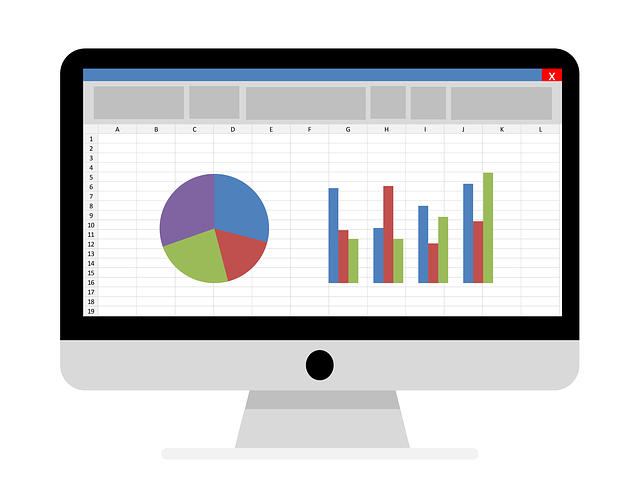UK Academic Journals face a growing demand for precise translation services to facilitate global research collaborations and open access. Professional translators with advanced degrees in relevant subjects are crucial, employing rigorous quality assurance processes including proofreading, term base management, and back-translation to uphold academic integrity. Comprehensive QA ensures factual accuracy, consistency, and adherence to author intent. Technology like machine translation software and integrated translation memory systems enhance efficiency while maintaining high scholarship standards. Balancing human and machine translation offers the best of both worlds for complex scholarly literature. Top UK journals like Nature and The Lancet rely on these services to share global research effectively. AI and machine learning innovations aim to further improve precision and efficiency in the future.
In the realm of academia, the demand for professional translation services within UK academic journals is on the rise. This article explores the intricate process of capturing academic rigor in translation, delving into crucial aspects such as understanding market dynamics, the role of expert translators, and key considerations when selecting a service provider.
From ensuring accuracy in technical content to navigating ethical guidelines for research materials, we examine quality assurance processes, the impact of technology, and successful case studies. Additionally, we forecast future trends shaping UK academic journal translation services, highlighting the evolving landscape of academic communication.
- Understanding the Demand for Translation Services in UK Academic Journals
- The Role of Professional Translators in Maintaining Rigor
- Key Considerations When Choosing a Translation Service Provider
- Ensuring Accuracy and Consistency in Technical and Specialized Content
- Ethical Guidelines for Translating Research and Scientific Material
- Quality Assurance Processes in Academic Journal Translation
- Leveraging Technology for Efficient Translation Workflows
- The Impact of Human vs Machine Translation in the Academic Realm
- Case Studies: Successful Translations in Top UK Academic Journals
- Future Trends Shaping Academic Journal Translation Services
Understanding the Demand for Translation Services in UK Academic Journals

In the highly competitive and globally connected academic landscape, UK Academic Journals find themselves in constant demand for precise and effective translation services. With research and scholarship knowing no borders, ensuring that content is accessible to a diverse audience has become paramount. The need for professional translators who can capture the rigor of academic writing while preserving its essence across languages is more acute than ever. This demand is fueled not only by the growth in international research collaborations but also by the UK’s commitment to open access and inclusive scholarly communication.
UK Academic Journals, striving to maintain high standards of intellectual exchange, rely on translation services that go beyond mere word-for-word rendering. They seek translators who understand the nuances of academic discourse, including specialized terminology and complex sentence structures. The goal is to preserve the integrity of research while making it accessible to readers worldwide, fostering a true global community of scholars. This necessitates a sophisticated approach to translation, one that captures not just the meaning but also the scholarly tone and intent inherent in academic writing.
The Role of Professional Translators in Maintaining Rigor

Professional translators play a pivotal role in ensuring academic rigor is maintained when translating documents for UK academic journals and research publications. Their expertise goes beyond language proficiency; they possess a deep understanding of various academic disciplines, enabling them to accurately convey complex concepts and terminology. These skilled professionals employ meticulous techniques, such as reference checking, term base management, and back-translation, to guarantee the translated content aligns precisely with the original source.
The significance of their work is immense, especially when dealing with specialized fields like science, medicine, law, or history. Professional translators ensure that academic integrity is preserved, allowing researchers and readers worldwide to access and comprehend scholarly works without linguistic barriers. UK Academic Journals Translation Services rely on these experts to bridge the gap between diverse languages, fostering global collaboration and knowledge exchange in the academic community.
Key Considerations When Choosing a Translation Service Provider

When selecting a translation service provider for UK academic journals, several key considerations come into play to ensure academic rigor is maintained. Firstly, look for companies that employ professional translators with advanced degrees and expertise in specific subject areas, such as science, medicine, or law. This ensures that complex terminology and concepts are accurately translated while preserving their nuances.
Additionally, verify if the translation service provider follows standardized quality assurance processes, including extensive proofreading and editing by native speakers. Reputable companies also offer post-translation review services to catch any errors or inconsistencies. The use of CAT (Computer-Assisted Translation) tools and memory databases further enhances accuracy and consistency across projects, making them ideal for UK academic journals seeking high-quality translations that meet rigorous standards.
Ensuring Accuracy and Consistency in Technical and Specialized Content

Ensuring accuracy and consistency in technical and specialized content is paramount when it comes to translation services for UK academic journals. This involves more than just substituting words from one language to another; it requires a deep understanding of both the source material and the target field. Professional translators specializing in academia must possess expertise in the specific subject matter, adhering to precise terminology and conceptual accuracy. They employ meticulous processes, including reference checking, term base management, and back-translation, to guarantee that the translated text not only conveys the intended meaning but also aligns with academic standards.
Consistency is another key aspect, especially when dealing with technical content where established conventions and jargon are essential. UK Academic Journals Translation Services aim to maintain a uniform style and terminology across all publications, ensuring that articles, research papers, and books remain coherent and accessible to global audiences. This includes maintaining formatting consistency, using the same abbreviations and acronyms throughout, and adhering to the journal’s or publisher’s specific house style guidelines.
Ethical Guidelines for Translating Research and Scientific Material

When translating research and scientific material for UK academic journals, adhering to strict ethical guidelines is paramount. Translators must ensure the accuracy and fidelity of the source text are preserved while conveying complex ideas clearly and concisely. This involves not just linguistic proficiency but also a deep understanding of the subject matter to capture nuances and technical terms accurately.
Ethical considerations include maintaining confidentiality, respecting intellectual property rights, and avoiding any form of bias or manipulation in the translation process. UK academic journals often have strict policies regarding plagiarism, so translators must employ tools to check for textual similarities and ensure all sources are properly cited. This meticulous approach guarantees that translated articles maintain their integrity and contribute meaningfully to the scholarly discourse within the UK academic community.
Quality Assurance Processes in Academic Journal Translation

Ensuring academic rigor in translation for UK academic journals involves robust Quality Assurance (QA) processes. These begin with a meticulous review of source documents, where experts verify factual accuracy, consistency, and adherence to the original author’s intent. Advanced tools like computer-aided translation memory and terminology databases further enhance precision by maintaining terminological coherence across translations.
Post-translation, multiple rounds of peer review and editing are common practice. Senior scholars or subject matter experts scrutinize the translated work for conceptual accuracy and theoretical soundness. This rigorous QA framework guarantees that UK academic journals maintain their high standards of scholarship even when content is rendered into different languages, fostering global scholarly discourse without compromising intellectual integrity.
Leveraging Technology for Efficient Translation Workflows

In today’s digital age, technology plays a pivotal role in enhancing efficiency within translation workflows, especially for demanding academic rigor in UK academic journals. Advanced tools and platforms offer a multitude of benefits, from initial text processing to final proofreading. Machine translation software, for instance, can rapidly translate large volumes of text, providing a solid foundation for translators to build upon. This not only expedites the overall process but also ensures consistency across various texts.
Moreover, integrated translation memory (TM) systems allow for the storage and retrieval of previously translated segments, reducing redundant efforts and guaranteeing term coherence throughout the entire document. These technologies are instrumental in maintaining academic integrity by facilitating precise and reliable translations, thereby elevating the quality of UK academic journals’ global reach.
The Impact of Human vs Machine Translation in the Academic Realm

In the academic realm, the choice between human and machine translation has significant implications. While machine translation services, including those offered by UK Academic Journals Translation Services, have advanced dramatically, they still struggle with the nuanced language and complex terminology often found in scholarly works. Human translators, on the other hand, bring specialized knowledge, cultural understanding, and contextual sensitivity to their work, ensuring that academic integrity is preserved.
In high-stakes academic settings, such as publishing research papers or applying for international scholarships, human translation can be crucial. It ensures that ideas are conveyed accurately, avoiding potential misinterpretations that could impact the credibility of the work. As UK Academic Journals Translation Services continue to evolve, the ideal approach may lie in combining machine translation for initial processing with human review and editing, capitalizing on the strengths of both methods to capture academic rigor in translation.
Case Studies: Successful Translations in Top UK Academic Journals

In the realm of UK academic journals, translation services play a pivotal role in disseminating research and knowledge globally. Case studies of successful translations highlight the intricate process and meticulous attention required to capture academic rigor. Top-tier journals, such as Nature, Science, and The Lancet, regularly publish articles translated from diverse languages, ensuring their content reaches a broader audience. These translations not only demand linguistic proficiency but also a deep understanding of the subject matter to convey complex scientific concepts accurately.
For instance, a study published in Nature on cutting-edge biotechnology research was initially written in Chinese. The translation process involved not just word-for-word rendering but also conceptual clarification and stylistic adaptation to align with English academic norms. This case underscores the importance of specialized translators who can navigate both linguistic and disciplinary barriers, thereby enhancing the impact of scholarly works across UK academic journals and beyond.
Future Trends Shaping Academic Journal Translation Services

The future of academic journal translation services in the UK is shaped by a myriad of technological and methodological advancements, with Artificial Intelligence (AI) and machine learning at the forefront. These innovations promise to enhance precision and efficiency in translation processes, benefiting both translators and publishers. With AI-powered tools, complex linguistic nuances can be tackled more effectively, ensuring academic integrity remains intact.
Additionally, there’s a growing emphasis on localization, tailored to specific cultural contexts, to make research accessible to a diverse global audience. This trend requires not just language proficiency but also an understanding of scholarly conventions and terminology across different regions. UK Academic Journals Translation Services are increasingly adopting these trends, ensuring they stay at the forefront of providing high-quality, precise, and culturally sensitive translations.
In conclusion, capturing academic rigor in translation for UK academic journals requires a multifaceted approach. From understanding the demand and leveraging technology to ensuring ethical guidelines and quality assurance, professional translators play a pivotal role in maintaining high standards. By carefully choosing translation service providers and considering both human expertise and machine efficiency, academic journal publishers can enhance their global reach while preserving intellectual integrity. These efforts contribute to the advancement of knowledge and research across international boundaries, ultimately enriching the academic landscape of UK and beyond.
